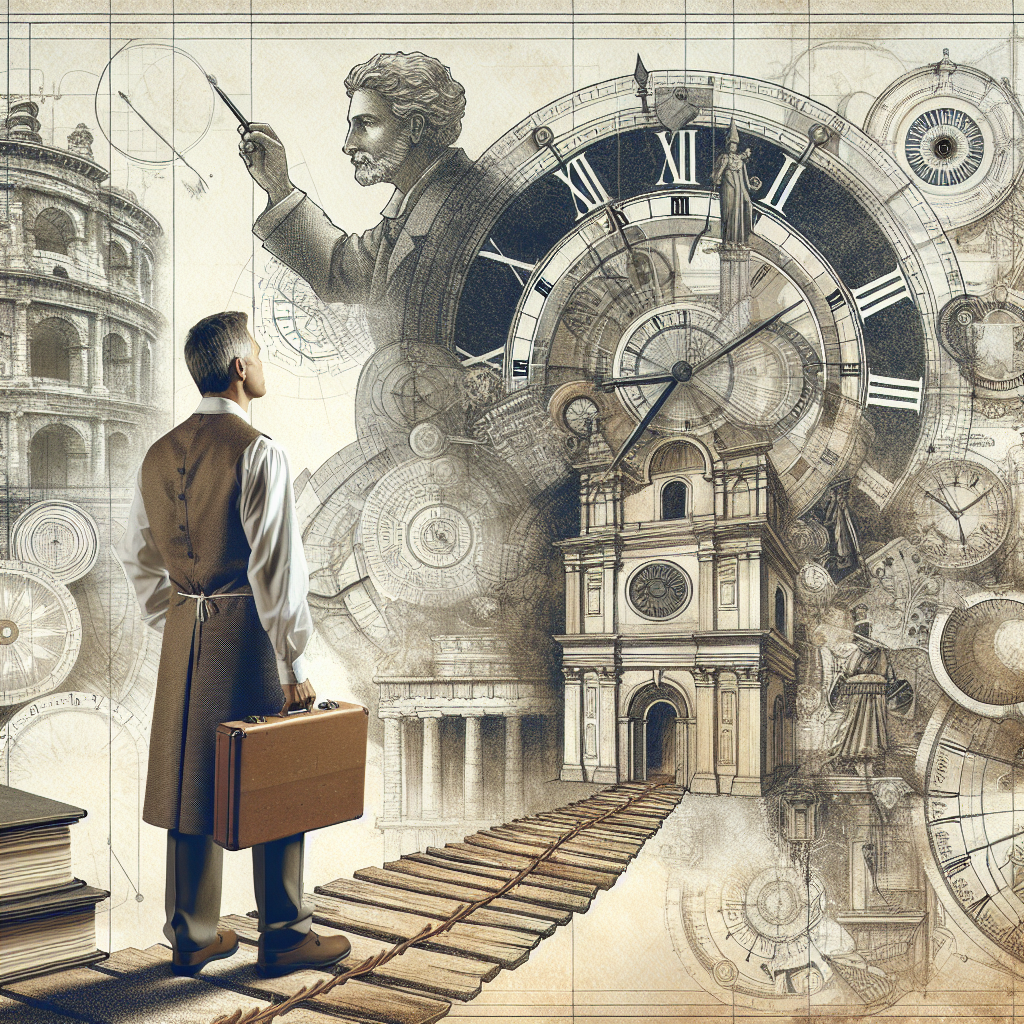
In the village of Chronos, where time did not flow but stood still, there lived a man named Thales. His life’s work was an intricate clockwork, the likes of which had never been seen. This was not just any clock but one that could navigate through history, manipulating time’s very essence.
Thales, with his clock, embarked on journeys. He walked with the great philosophers of ancient Greece, debated with Leonardo da Vinci during the Renaissance, and whispered words of peace to Martin Luther King Jr. But with each trip, Thales observed something peculiar: the past was not as rigid as he believed. Each visit subtly altered the future, causing ripples in the timeline that only he could perceive.
As years turned into decades, Thales realized the gravity of his creation. His clock was not just a tool but a profound responsibility. Every step he took through history was a step towards an unknown future. With this realization came a fear of misuse. If his clock fell into the wrong hands, history could be rewritten, erasing the very essence of humanity’s progress.
One stormy night, as the winds howled through Chronos, Thales made a decision. He would return to the genesis of his invention, to the day he conceived the idea of his time-altering device. He set the hands of his clock to the exact moment and vanished into the past.
Upon arrival, Thales stood before his younger self, explaining the dangers, the potential for catastrophic misuse. His younger self, wide-eyed with the foresight, agreed to abandon the project. Together, they dismantled the clock, piece by piece, ensuring no one would ever manipulate time again.
Thales returned to his time, but the village of Chronos was no more. His act of preserving history’s integrity had erased his own existence from the timeline. Yet, he smiled, knowing that somewhere, in the vast tapestry of time, his legacy was one of preservation, not alteration.
